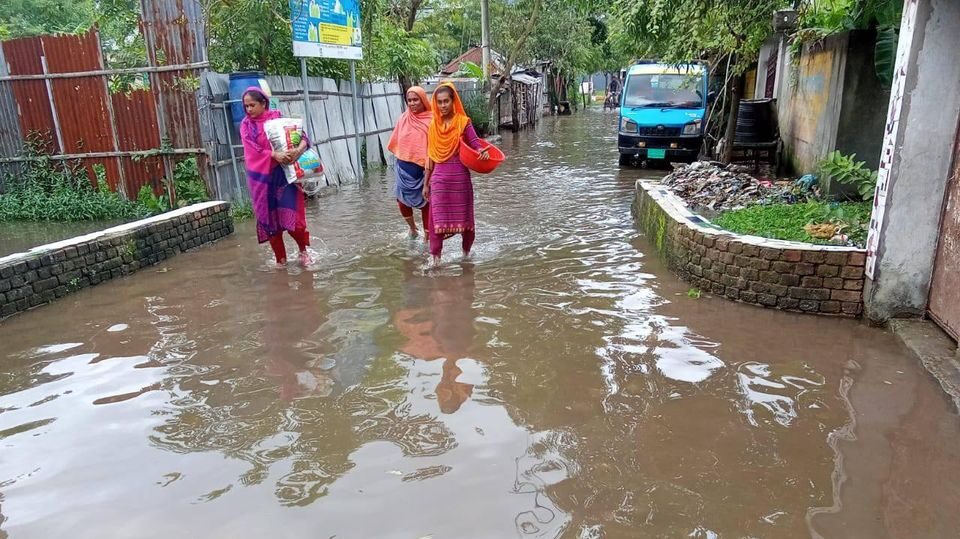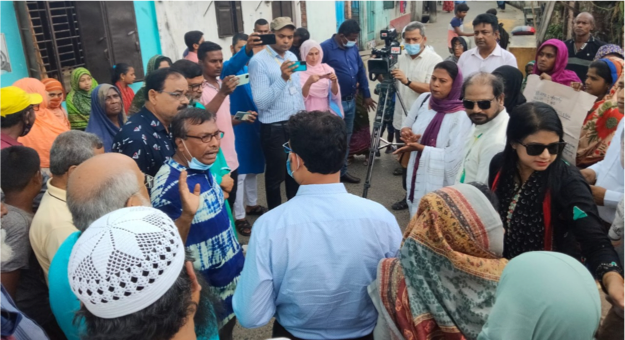With support from the mayor of Bangladesh’s third largest city, local organizations focused on environmental resilience joined forces to help to strengthen their response to threats due to climate change.
The multi-stakeholder initiative comes at a time when parts of the country are seriously affected by environmental threats. In the Khulna district, waterlogging is prevalent in the southwest. Heavy rainfall and weak infrastructure have compounded the problem. In September 2022, a record 5.75 inches of water fell in a 24-hour period–the highest in six years. The rainfall halted business and the delivery of core services for days.

Waterlogging is a persistent environmental threat in southwestern Bangladesh. Photo courtesy of Sushilan Consortium.
In response, a group of local organizations dedicated to building environmental resilience formed the Sushilan Consortium. Counterpart’s USAID-funded Promoting Advocacy and Rights (PAR) Activity is supporting the Sushilan Consortium to foster cross-sectoral partnerships to promote good governance. The Activity supports local organizations through grants to address citizen priorities in partnership with the government of Bangladesh.
The consortium established a 25-person multi-stakeholder working group to improve water and sanitation and waste management in a transparent and accountable manner. Through their ongoing engagement, working committee members have an improved understanding of their civic rights and responsibilities, which is leading them to take ownership of other governance strengthening initiatives.

Sheikh Mohammad Ali, councilor of Ward Number 5 of Khulna City, speaks with the community and media representatives on the model ward plan proposed by the Sushilan Consortium.
Despite growing concerns about the shrinking civic space in Bangladesh, the consortium is supporting responsive local government. They have mobilized new civic actors and proposed a model ward plan with clear recommendations to improve local services. In June 2022, the working group established a monitoring framework that allowed civil society, the public, and the private sector to collaboratively observe progress in achieving the goals established in the model ward plan in two municipalities. The framework serves as a model of civil society engagement that can be scaled and replicated. On December 27, 2022, the mayor expressed his commitment to sustaining civil society engagement – pledging to continue his support of the working group beyond the PAR Activity’s period of performance.
In a recent meeting, Sheikh Mohammad Ali, councilor of Ward Number 5 in Khulna City said, “[Until PAR] We had never seen a multi-stakeholders coordination mechanism. We are thankful for USAID for their generous support to establish this platform and respond to citizen needs.”
Read more about the Promoting Advocacy and Rights Activity and its efforts to co-create solutions to environmental pollution and unplanned urbanization here.




